A Socio-spatial Experiment on Transitioning Towards Post-capitalist Future 2020, Belgium, Bussels
An exploration of radical imagination, converging theories and contexts into a vision of an alternative future.
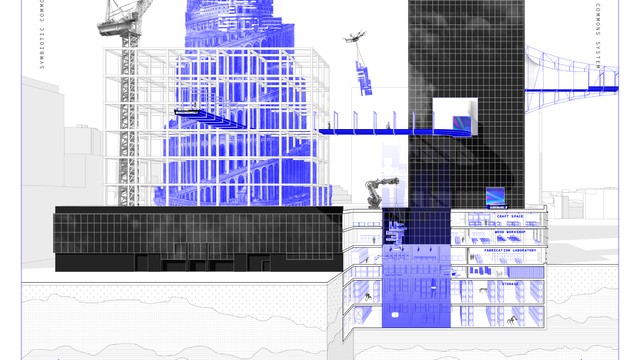
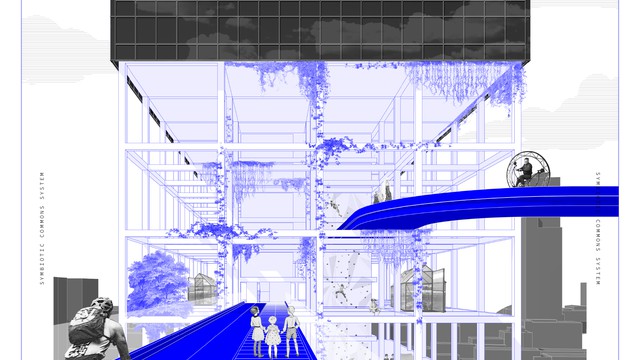
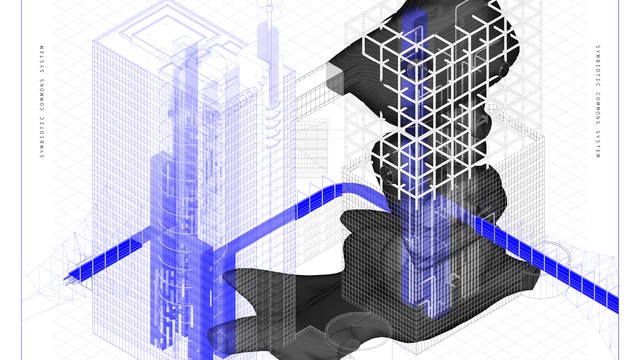
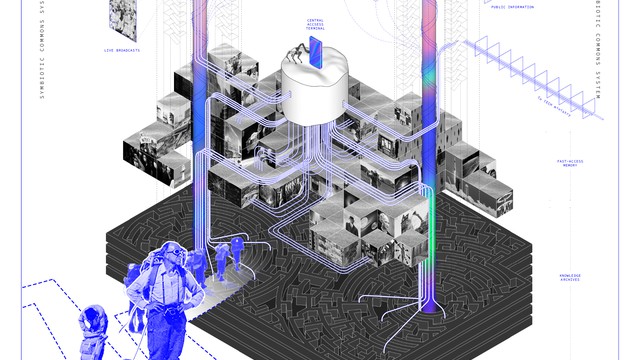
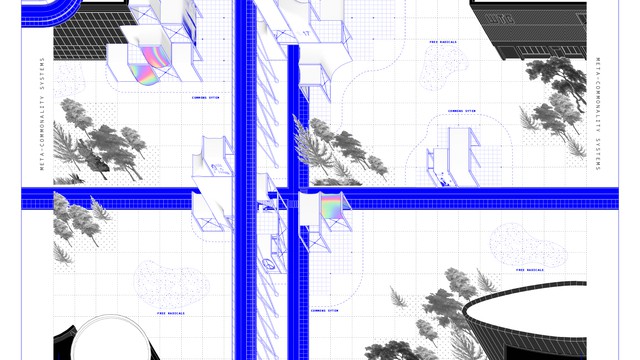
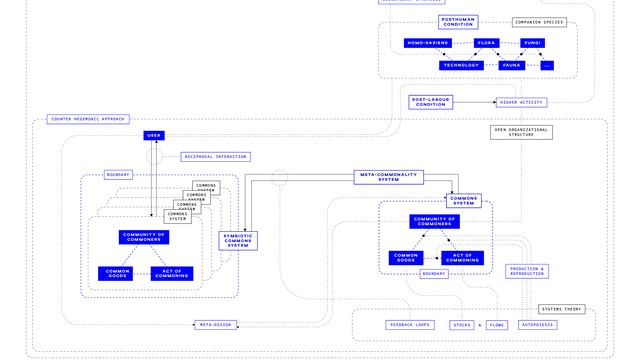
Imagine: technological and ecological developments have led to a posthuman condition. Through these developments species other than homo sapiens have gained their own forms of sovereignty. Different species now stand on equal grounds forming a larger family of companion species. Tangible and intangible technologies, flora, fauna and fungi brought various ecosystems into spaces previously solely controlled by humans, forming new forms of independencies and interdependencies. Could such a vision of a non-anthropocentric collective future be viable? Or has our individual and collective imaginations collapsed under neoliberalism?
The media, for the past decades, has been riddled with dystopian imaginaries of the future. The current social, political and economic climates sometimes make one feel like the future has been cancelled, but can an alternative be imagined? The ’70s saw the rise of neoliberalism, together with its ideologies of privatization and austerity, and promotion of free-market capitalism, consequently, radical imaginations that were prevalent in the ‘60s were shunned away. This does not mean, however, that radical imaginations should remain unpracticed. The project is an exploration of radical imagination paradigms. Converging theories and contexts into a vision of an alternative future. This attempt to envision an alternative is at the core of this project, breaking from the neoliberalism induced collapse of individual and collective imaginations. These alternative visions are the tool to start constructing the future, the future free from alienation and hegemony. They form grounds for action. After all, radical imagination is not only an act of thinking differently but also acting differently. The project is based on three motivational questions: (How) do we address the complexity and the future?; (How) do we rise from the collapse of collective imagination?; (How) do we address the rise of temporalities of urgencies, the “anthropomeme” and posthuman condition? By exploring these questions in theory studies and case analyses, a theoretical framework and a socio-spatial strategy are established. They help to form narratives that are implemented in the project site - Brussels North Quarter. In this context, 6 different perspectives of the alternative vision for Brussels North Quarter are explored. Starting with a broad view of the four World Trade Center blocks, followed by 4 explorations of 4 different ministries and finishing with the exploration of the infrastructure that connects them.
https://www.youtube.com/watch?v=hqjR1jImDw4
https://www.linkedin.com/in/vilius-ba/
Poster
Details
Supervisor : Prof. Burak Pak and Hulya Ertas
Institution : KU Leuven
Descriptions
Technical Concept : In the project, a diagrammatic framework is devised to illustrate the converges of concepts into a singular picture of radical imagination. Not as an attempt to create a universal structure for imagining the future, but as a narrative based on tendencies and aspirations. The diagram outlines connections between different concepts under one radical imagination umbrella. Here, companion species, through higher activity form communities of commoners, which by the act of commoning form commons systems, that through boundary commoning are able to form larger, symbiotic or meta-commonality systems. Different interactions are tied to significant otherness, systems theory and meta-design. Formations of these systems are bound by a counter-hegemonic approach.
Credits
Vilius Balčiūnas
Vilius Balčiūnas
Vilius Balčiūnas
Vilius Balčiūnas
Vilius Balčiūnas
Vilius Balčiūnas
Vilius Balčiūnas
Vilius Balčiūnas